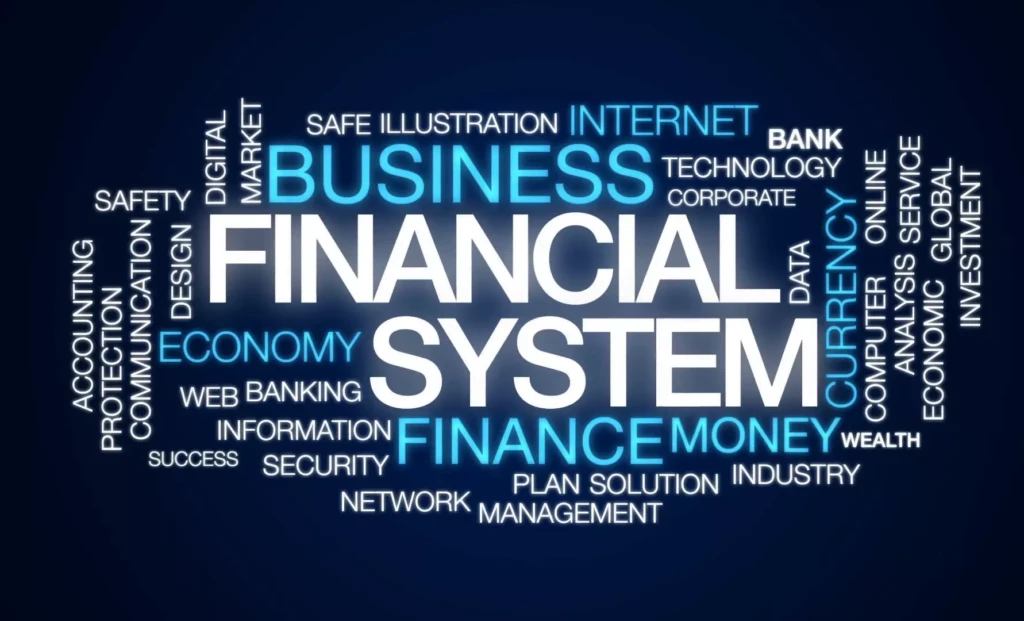What Do You Mean by Financial System?
What do you mean by financial system? At its core, the financial system is the intricate network of institutions, markets, regulations, and instruments that enable money to flow across the economy. It governs how savings are turned into investments, how risks are managed, and how individuals, businesses, and governments access the funds they need. Without a functioning financial system, modern economies would grind to a halt.
In an investigative lens, the financial system is not just about banks or stock exchanges—it is the invisible infrastructure that underpins every major economic activity, from buying a home to funding a multinational corporation’s expansion.
The Core Components of the Financial System
To fully answer the question “What do you mean by financial system?”, we need to break down its main components.
1. Financial Institutions
Financial institutions act as intermediaries between savers and borrowers. These include:
- Commercial banks – Safekeeping of deposits, issuing loans, and facilitating payments.
- Investment banks – Raising capital, managing mergers and acquisitions, underwriting securities.
- Insurance companies – Providing risk management and long-term investment services.
- Central banks – Setting monetary policy, regulating currency supply, and ensuring systemic stability.
Together, they form the backbone of the system, determining liquidity and accessibility of capital.
2. Financial Markets
Markets provide platforms where assets and securities are traded. They are often divided into:
- Capital markets (stocks, bonds) – Long-term investments.
- Money markets – Short-term borrowing and lending.
- Foreign exchange markets – Trading of currencies, crucial for global trade.
- Derivatives markets – Instruments for hedging and speculation.
Markets ensure price discovery, liquidity, and transparency.
3. Financial Instruments
The tools of the trade, ranging from traditional loans and equity shares to complex derivatives and digital assets. Instruments are designed to transfer resources, allocate risk, and generate returns.
4. Regulatory Framework
A financial system without oversight can spiral into crises. Regulations, whether enforced by national bodies like the U.S. Securities and Exchange Commission (SEC) (source) or global watchdogs like the International Monetary Fund (IMF) (source), ensure stability, trust, and transparency.
Why the Financial System Matters
Understanding “What do you mean by financial system?” also means understanding why it is central to economic health.
- Capital Allocation – It channels funds to the most productive projects.
- Risk Management – Insurance and derivatives help mitigate financial uncertainty.
- Wealth Creation – Investments generate growth for individuals and nations.
- Economic Stability – A sound system cushions shocks, while a weak one amplifies crises.
The 2008 global financial crisis serves as a stark reminder of what happens when financial systems fail in their regulatory and structural duties.
Historical Evolution of Financial Systems
The financial system has evolved through centuries, reflecting changes in economies and technology.
- Ancient systems: From Mesopotamian loans in silver to Roman banking.
- Medieval Europe: Rise of merchant banks like the Medici family.
- Industrial era: Development of stock exchanges and insurance.
- Modern age: Integration of global capital markets and digital finance.
Each stage brought greater sophistication but also higher risks.
The Global Financial System Today
The modern financial system is borderless. Capital flows freely across nations, powered by digital platforms, blockchain technology, and complex derivatives.
- The Bank for International Settlements (BIS) (source) acts as the “central bank for central banks.”
- Cryptocurrencies and DeFi are reshaping how we think about money and value exchange.
- Sustainable finance is emerging as investors seek green bonds and ESG-compliant portfolios.
Yet, this globalization also means that crises in one corner—say, the collapse of a major bank—can ripple across continents.
Challenges Facing Financial Systems
While robust, today’s financial system faces several challenges:
- Cybersecurity risks – Increasing reliance on digital platforms makes the system vulnerable.
- Inequality – Financial inclusion remains limited in many developing nations.
- Systemic risks – Complex interconnections make collapse harder to contain.
- Technological disruption – AI, blockchain, and fintech could either stabilize or destabilize the system.
FAQ Section
What do you mean by financial system in simple terms?
The financial system is the network of banks, markets, and institutions that manage money flow between savers and borrowers.
What do you mean by financial system and its types?
It includes banking systems, insurance systems, capital markets, and digital financial networks, each serving different roles in money movement.
What do you mean by financial system in economics?
In economics, the financial system refers to how capital is allocated, risks are managed, and resources are distributed within an economy.
What do you mean by financial system in business?
For businesses, the financial system provides access to credit, investment opportunities, and risk management tools critical for growth.
Conclusion: The Future of the Financial System
So, what do you mean by financial system in the 21st century? It is no longer just a structure of banks and stock exchanges—it is a dynamic, interconnected web influenced by technology, regulation, and global trade.
As artificial intelligence, decentralized finance, and digital currencies rise, the financial system will continue to evolve, shaping the global economy in unpredictable ways. The key question for the future is whether regulators, institutions, and innovators can strike a balance between efficiency, stability, and inclusivity.
In answering the question “What do you mean by financial system?”, we uncover not just a definition but the story of how money moves the world—and where it might take us next.

